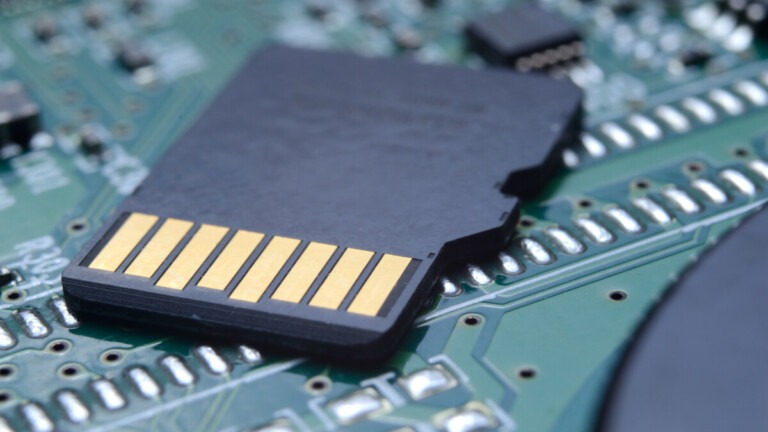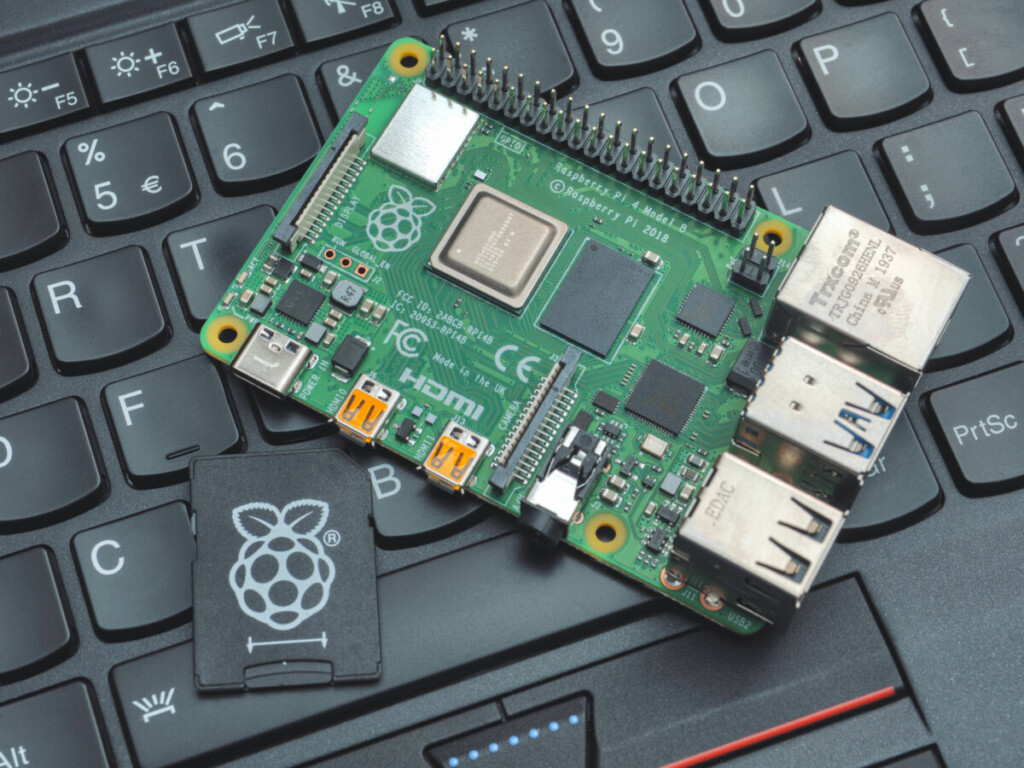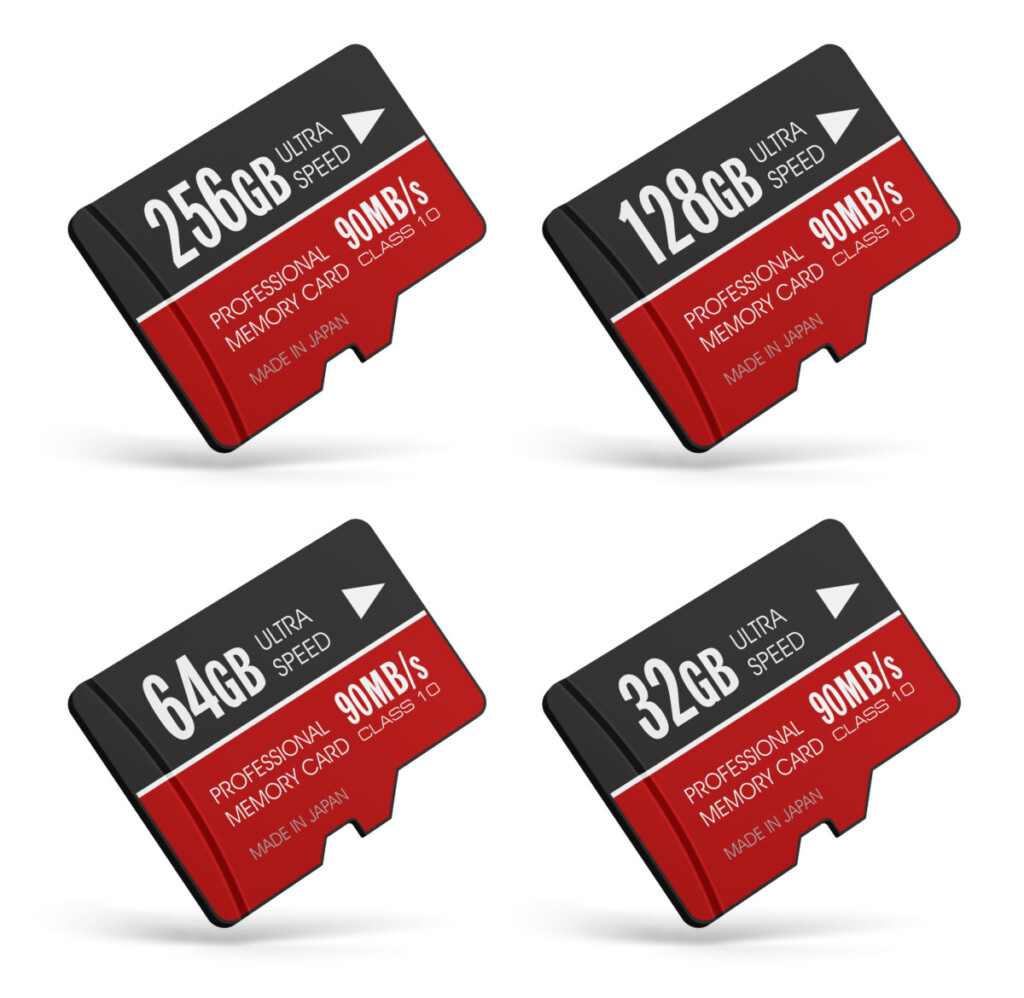How to Choose a microSD Card for the Raspberry Pi – 2023 Edition

As a Soracom IoT evangelist, it may not surprise you to learn that I have 8 Raspberry Pi in my personal collection of connected devices. It’s a small but versatile tool that makes it easy to connect sensors and cameras, which can make these single-board computers the backbone of an IoT deployment, even at scale.
The Raspberry Pi requires users to install an operating system like Linux, Windows, or macOS, and given the limitations of the device’s onboard memory, a microSD is a common installation destination. Since there are many types of microSDs on the market, you may find yourself asking “Which microSD card works best for a Raspberry Pi?”
Though we have tackled this topic in the past, we thought it best to provide some updated criteria for how to choose a microSD card to use with Raspberry Pi.

Knowing What to Look for in a microSD For Your Raspberry Pi
To get this out of the way, our team of IoT experts recommends finding a microSD with 64GB capacity and a speed of at least U1. After considerable testing and conversation with our customers and developers, we arrived at these specifications based on multiple criteria.
Capacity
As microSD technology continues to evolve and mature, so do the capacity sizes of commonly available SD cards. Whereas we may have recommended 32GB or smaller in the past, 64GB SDs are generally more readily available these days. Nowadays, it isn’t uncommon to find microSDs as large as 1TB more often than one under 32GB.
This is typically more memory than is needed for an OS, but as microSDs with smaller capacities are being more or less phased out, we found it a surer bet to rely upon those that can be easily purchased and/or replaced.
In the past, installing an OS on a microSD larger than 32GB required some technical work, but modern operating systems (i.e. Windows 10 or later; Newer versions of macOS; etc) have made things much easier. If you have any questions about installing an OS onto a larger microSD card, then check out our engineers’ earlier blog on handling microSDs larger than 64GB.
Price per GB
The market price per microSD is, on average, around $4 for 32GB and roughly $6 for 64GB, a difference of about $2. By doing a rudimentary cost analysis based on the average cost per gig unit price, we find that 64GB offers the most enticing mixture of savings and size.
At scale, 64GB microSDs offer the best bang for your buck, though if your deployed Raspberry Pis require larger capacities for your project to function appropriately, further cost analysis and a better understanding of the cost per GB may be required.
Speed
For microSD cards, speed is the rate at which data is read and written, meaning the faster the speed rating, the more functional it is in your deployment. Speeds are classified by speed classes, with the current highest speed class is V90, but for practicality and availability, U1 (V10 equivalent) should be sufficient for most deployments involving Raspberry Pi.
You may be tempted to get an SD card that has “Video Speed Class,” (denoted with V), though it’s important to recognize when this kind of speed can be needed. These microSDs were designed with high-speed applications like 8K video in mind, meaning they may not be necessary for every deployment. Given that cards with faster speed ratings also carry higher price tags, investing in a top-of-the-line SD may be unnecessarily expensive.
You can find a simple breakdown of the relationship between V90, U1, V10, and other speed classes, on Kingston Technology’s page. For a speed comparison between U1 and its higher class U3, you can check out our own piece on Speed Differences between U1 and U3.

Considerations Beyond Capacity, Speed, and Price
Thus far we have focused on specifications such as capacity, price, and speed, but when you’re evaluating a microSD for your Raspberry Pi, you also need to consider what happens after the system has been installed. Specifically, you will want to look at two factors: “How will you handle when/if a microSD fails” and “What is its warranty.”
Though microSDs do not have any physical mechanisms, they can still fail. Whether due to unexpected power outages or reaching an SD’s rewrite limit, it’s best to treat microSDs as consumables that will need to be swapped out from time to time. To prepare for this uncommon, but potential inconvenience, there are two schools of thought:
- Configure Your Devices to Mitigate Failures – This could mean deploying data transfer services like Soracom Beam and cloud adapters like Soracom Funnel to back up connection information and authentication processes to your backend rather than microSD itself.
- Make Replacing a Downed microSD Simple – This can be tricky and time-consuming, though by establishing best practices for lengthy processes such as provisioning Raspberry Pis you can help mitigate some of the strain created by downtime.
For more information, please see this article on the typical causes of microSD failures and some worthwhile countermeasures.
You will also want to keep an eye on an SD’s warranty policy, as depending on where you purchased the microSD from and where they are being deployed, national borders and other limitations may not conform to their specific terms. Take a look at this article to see some of the ways that this notation can impact a warranty.
Finding the Right microSD for Your Raspberry Pi Can be Easy
MicroSD may be very familiar to developers using Raspberry Pi, but knowing precisely what kind of SD your project needs can help save time and money in the long run.
A microSD can have a short life cycle, so you’ll want to stay up-to-date on the technology and be prepared to swap for a different make/model rather than sticking to one specific brand. After all, the technology is always evolving – so should our IoT development strategies.
I hope this blog will help you in your microSD selection!
………………
Got any questions about an IoT deployment? Soracom offers a number of powerful solutions that have made us a visionary in the IoT space. Chat with us today to learn how a partnership with Soracom can get your project up and running easily and securely. Contact us today!



